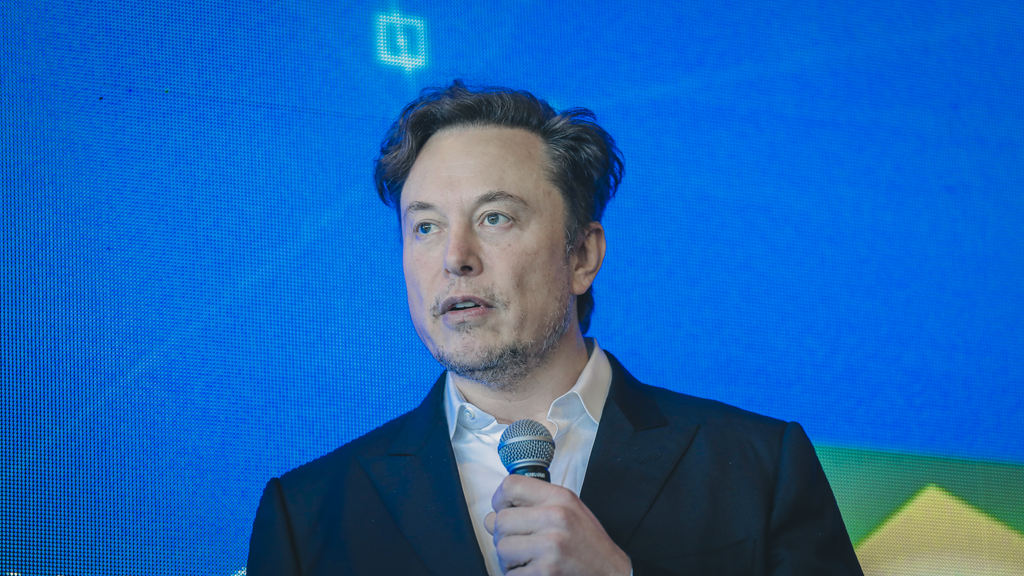Elon Musk, the billionaire entrepreneur behind Tesla and SpaceX, made waves in political circles after reportedly donating $289,100 to House Republicans, according to a recent report from the Federal Election Commission (FEC) provided by the National Republican Congressional Committee (NRCC). The substantial contribution has drawn attention to Musk's growing political involvement and sparked controversy over the influence of wealthy individuals in American politics.
The sizable donation to House Republicans suggests that Musk, whose public statements have often blurred the lines between technology and politics, may be aligning more closely with conservative lawmakers. This move comes amid Musk’s increasing political activity, particularly through his outspoken opinions on social media platforms like X (formerly Twitter), which he now owns. His advocacy for free speech and criticisms of government regulations have placed him in the spotlight as a significant figure in political discourse.
Musk’s contribution comes at a critical time for House Republicans, who are gearing up for contentious battles in Congress. With control of the House currently in Republican hands, donations like Musk’s are essential for maintaining influence and driving legislative agendas. Musk’s financial backing is seen as a clear signal of support for policies that may align with his interests, including deregulation, tax policies favorable to large corporations, and reducing government interference in technology and innovation sectors.
The donation has also reignited debates about the role of billionaire donors in shaping U.S. political outcomes. Critics argue that large contributions from individuals like Musk can skew the political landscape, giving undue influence to the wealthy and potentially drowning out the voices of ordinary voters. Campaign finance reform advocates have long pushed for stricter regulations to curb the influence of money in politics, and Musk’s recent donation is likely to fuel further calls for reform.
Supporters of Musk’s actions argue that as a private citizen, he is entitled to contribute to political causes and candidates that reflect his views. They emphasize that his financial success and innovative leadership in industries like electric vehicles and space exploration have had a positive impact on the country, making his involvement in political discourse both relevant and justified. For many, Musk represents the kind of entrepreneurial vision that they believe should be reflected in government policy.
While Musk’s donation to House Republicans has garnered significant attention, it is not the first time he has engaged with the political system. Over the years, Musk has contributed to both Democratic and Republican candidates, often advocating for policies that benefit technological advancement, renewable energy, and space exploration. His willingness to cross political lines in the past demonstrates a pragmatic approach to political donations, focusing on specific issues rather than party loyalty.
As Musk continues to increase his presence in the political arena, the implications of his contributions and his potential influence on policy will be closely watched. Whether his recent donation will impact future legislation remains to be seen, but it has certainly ignited fresh discussions about the intersection of wealth, technology, and politics.



 U.S. Middle East Strikes Raise Indo-Pacific Security Concerns for Japan, South Korea, and Taiwan
U.S. Middle East Strikes Raise Indo-Pacific Security Concerns for Japan, South Korea, and Taiwan  U.S. Begins Charter Evacuations as Iran Conflict Disrupts Middle East Air Travel
U.S. Begins Charter Evacuations as Iran Conflict Disrupts Middle East Air Travel  Trump’s Iran Strikes Spark War Powers Clash in Congress
Trump’s Iran Strikes Spark War Powers Clash in Congress  European Allies Deploy Air Defenses to Cyprus After Drone Attack on RAF Akrotiri Base
European Allies Deploy Air Defenses to Cyprus After Drone Attack on RAF Akrotiri Base  Why did Iran bomb Dubai? A Middle East expert explains the regional alliances at play
Why did Iran bomb Dubai? A Middle East expert explains the regional alliances at play  Nepal General Election 2026: Youth Protests, Political Change, and a New Generation of Voters
Nepal General Election 2026: Youth Protests, Political Change, and a New Generation of Voters  AI is already creeping into election campaigns. NZ’s rules aren’t ready
AI is already creeping into election campaigns. NZ’s rules aren’t ready  Middle East Air War Triggers Massive Flight Cancellations and Global Airline Disruptions
Middle East Air War Triggers Massive Flight Cancellations and Global Airline Disruptions  Trump Says U.S.-UK Relationship Has Deteriorated After Starmer Hesitates on Iran Strikes
Trump Says U.S.-UK Relationship Has Deteriorated After Starmer Hesitates on Iran Strikes  Defense Contractors Move to Drop Anthropic AI After Trump Administration Ban
Defense Contractors Move to Drop Anthropic AI After Trump Administration Ban  Does international law still matter? The strike on the girls’ school in Iran shows why we need it
Does international law still matter? The strike on the girls’ school in Iran shows why we need it  Supreme Court Backs GOP Lawmaker in New York Redistricting Fight Ahead of Midterms
Supreme Court Backs GOP Lawmaker in New York Redistricting Fight Ahead of Midterms  U.S. Military Strikes on Iran Complicate Xi-Trump Summit and Expose China’s Energy Risks
U.S. Military Strikes on Iran Complicate Xi-Trump Summit and Expose China’s Energy Risks  Santander’s $12.2B Webster Financial Deal Faces Uncertainty Amid U.S.–Spain Trade Tensions
Santander’s $12.2B Webster Financial Deal Faces Uncertainty Amid U.S.–Spain Trade Tensions  Trump to Attend White House Correspondents’ Dinner 2026, Ending Long Boycott
Trump to Attend White House Correspondents’ Dinner 2026, Ending Long Boycott  Suspected Drone Strike Hits RAF Akrotiri Base in Cyprus, Causing Limited Damage
Suspected Drone Strike Hits RAF Akrotiri Base in Cyprus, Causing Limited Damage  Israel-Hezbollah Escalation Deepens Lebanon’s Role in Middle East Conflict
Israel-Hezbollah Escalation Deepens Lebanon’s Role in Middle East Conflict 




























